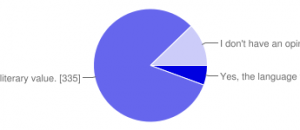Censored Version of Huck Finn Causes Loss of Historic Meaning
 Alan Gribben, an English Professor at Auburn University, is scheduled to release a censored version of The Adventures of Huckleberry Finn in Feb. where the ‘n’ word will be replaced with slave. This censorship lessens the literary value and undermines the reality of the time.
Alan Gribben, an English Professor at Auburn University, is scheduled to release a censored version of The Adventures of Huckleberry Finn in Feb. where the ‘n’ word will be replaced with slave. This censorship lessens the literary value and undermines the reality of the time.
“It is ignorant to think that we can change history and that is what the publisher is trying to do,” said Greg Wagner.
Furthermore, censoring Huck would undermine what the author was attempting to accomplish through his diction.
“I think Huck should not have been censored because the ‘n’ word, due to the satirical aims of the book, are necessary to properly display the mentality of the time period the book was written in,” said junior Ben Rosemann.
The presence of the ‘n’ word over 200 times in the novel can be hard to handle. That is the point.
“They should have censored it because of the ‘n’ word. I think that they should have censored it a long time ago to stop using the word,” said junior Ja’Leah Smith.
This is a valid argument. The word is offensive and should not be used. However, that does not erase the fact that it was common language in the mid 19th century, the time period the book was set.
In addition, the word is commonly found in songs today. At least when it is used in the novel it is used to highlight the immorality of the use.
“I think Twain would be more shocked by the language of this generation’s language than they are shocked of Twain’s language,” said Wagner
“Since it is literature, it wouldn’t offend me because there is a difference between history and someone using the word today. It is part of the story and when you take stuff out it’s not the same,” said sophomore Genevieve Hampton.
While there will soon be a censored version of the novel in circulation, schools should not resort to it. The original text will have much more impact on the readers. With the censored version, readers lose the power to gain accurate depiction of history and the power to sympathize.
By Amber Smith